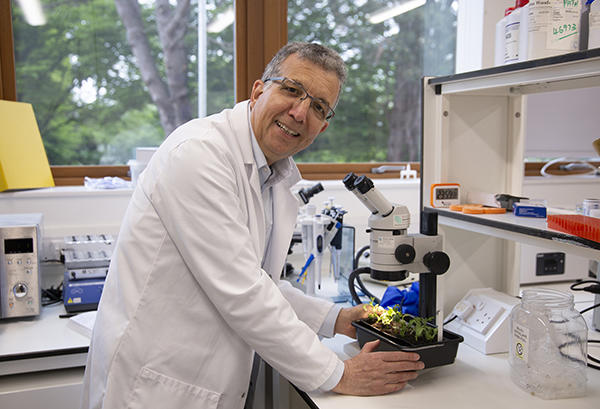Residents in Worcester can find out all about the important role that plants play in our lives thanks to a free interactive event organised by University of Worcester scientists.
 Professor Mahmut Tör
Professor Mahmut Tör
Academics and research students will deliver a day of activities, informative talks, displays and hands-on demonstrations at The Hive this month all focused on plant health, including a plant health diagnosis clinic and the chance to pick up a free plant. The ‘Plant Health Matters’ event takes place on Sunday, May 12 from 10.30am-3.30pm.
“The event aims to shed light on the often-overlooked significance of plants in sustaining life and maintaining the health of our ecosystems,” said event lead Professor Mahmut Tör, who has been researching plants and pathogens for more than 30 years. “This day is for anybody, both children and adults - from keen gardeners to those with little plant knowledge - to join in celebrating the beauty and importance of plants. Together, let's safeguard their well-being for the benefit of future generations.”
The event has been organised by the University’s Molecular Plant and Microbial Biosciences Research Unit (MPMB-RU) in collaboration with experts from the School of Science and the Environment. It is designed to coincide with the United Nations’ Food and Agriculture Organization’s designated International Day of Plant Health (May 12).
Visitors can explore tiny microorganisms through microscopes to understand how they cause plant diseases. They can also learn about the pollination process and the crucial role pollinators, such as bees and other insects, play in plant reproduction and maintaining a healthy ecosystem.
Other highlights of the event include a question-and-answer session with a University panel of experts and a plant clinic offering help in identifying and diagnosing plant diseases from garden and farm samples brought in by the public. There is also the chance to take home free plants. Attendees will also have the opportunity to learn about cutting-edge research in areas such as disease resistance, beneficial microbes, new generation pesticides for crop protection, soil health, use of infrared cameras to detect stressed plants and sustainable agricultural practices.
“People must recognise the significance of plants," added Professor Tör, who leads the University’s MPMB-RU. "Plants are essential not only for humans but also for the entire ecosystem. They provide food for soil microbes, animals, and us. Additionally, they produce oxygen crucial for sustaining life on earth.”
The event is free and open to the public. No registration is required.